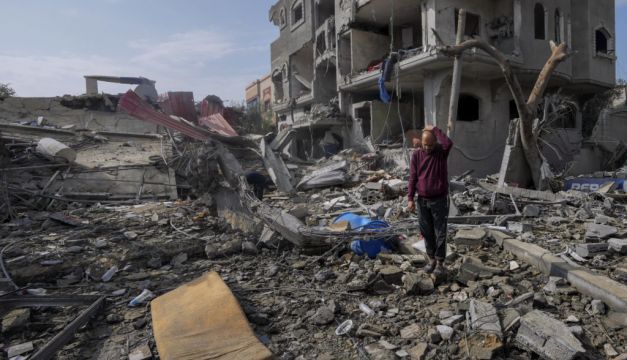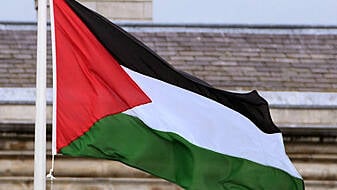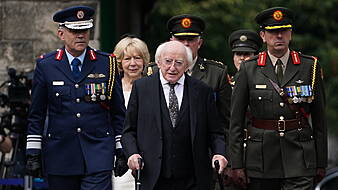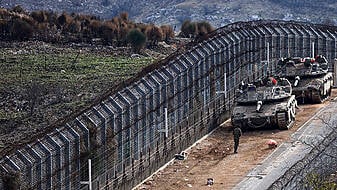Prime minister Benjamin Netanyahu says Israel will expand its Gaza ground offensive in the coming days, despite international efforts to halt the fighting.
Speaking to members of his Likud Party on Monday, Mr Netanyahu said the war “isn’t close to finished”.
He spoke after returning from a visit to troops fighting inside Gaza, and as Egypt is floating an ambitious proposal to end the Israel-Hamas war.
“We are not stopping. We are continuing to fight and we are expanding the fight in the coming days,” Mr Netanyahu said. “There will be a long battle and it isn’t close to finished.”
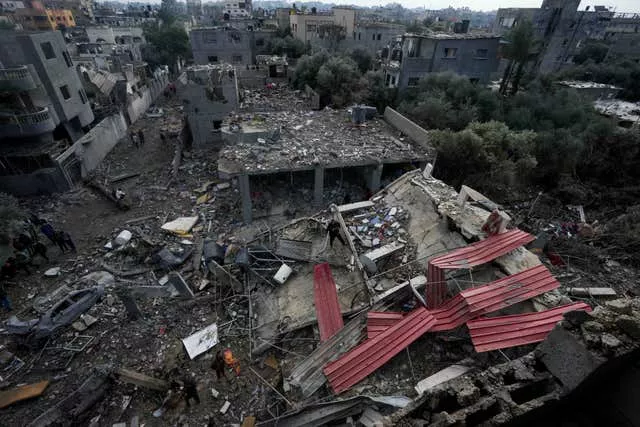
Egypt has put forward an ambitious, initial proposal to end the Israel-Hamas war with a ceasefire, a phased hostage release and the creation of a Palestinian government of experts who would administer the Gaza Strip and occupied West Bank, a senior Egyptian official and a European diplomat said on Monday.
The proposal, worked out with the Gulf nation of Qatar, has been presented to Israel, Hamas, the US and European governments but still appeared preliminary.
It falls short of Israel’s professed goal of outright crushing Hamas and would appear not to meet Israel’s insistence on keeping military control over Gaza for an extended period after the war.
Word of the proposal came as Israeli airstrikes heavily pounded central and southern Gaza, crushing buildings on families sheltering inside.
In the Maghazi refugee camp, rescue workers pulled dozens more bodies from the wreckage hours after a strike levelled a three-story building and shattered others nearby.

At least 106 people were killed, according to hospital records seen by The Associated Press, making it one of the deadliest strikes of Israel’s air campaign.
The war has devastated large parts of Gaza, killed more than 20,400 Palestinians and displaced almost all of the territory’s 2.3 million people.
The mounting death toll among Israeli troops – 17 since Friday and 156 since the ground offensive began – could erode public support for the war, which was sparked when Hamas-led militants stormed communities in southern Israel on October 7, killing 1,200 and taking 240 hostage.
Israelis still largely stand behind the country’s stated goals of crushing Hamas’ governing and military capabilities and releasing the remaining 129 captives.
That is despite rising international pressure against Israel’s offensive, and the soaring death toll and unprecedented suffering among Palestinians.
After Sunday night’s strike in the Maghazi camp, people searched through the rubble, many with their bare hands or simple tools.
To our Christian friends around the world, Merry Christmas.
Christmas is supposed to be a time of good will to all men and peace on Earth. Well, we don't have peace on Earth, not in our part anyway, and we certainly don't see good will to all men.
We're facing monsters,… pic.twitter.com/NleTWVybSb— Benjamin Netanyahu - בנימין נתניהו (@netanyahu) December 25, 2023
The dead continued to flow into Al-Aqsa Martyrs Hospital in nearby Deir al-Balah, where men prayed over several dozen bodies laid out on the ground.
Sobbing relatives peeled open body bags for a last look or to kiss the face of a loved one.
One man wept as he hugged a body wrapped in bloody plastic sheeting, the size of a small child.
Another man knelt over the body of a relative, screaming, “I swear to God, he was a man. I swear to God, he was better than the whole of Hamas.”
The devastation of the war over the past weeks has brought sporadic eruptions of anger against Hamas, something that would have previously been unthinkable during the group’s 16-year rule over Gaza.
Apart from the Maghazi deaths, the bodies of another 80 people killed in strikes across central Gaza were also received at the hospital from late Sunday to early Monday, hospital records showed.
Since Friday, 17 Israeli soldiers have been killed in combat, most in southern and central Gaza, an indication of the heavy fighting in and around the southern city of Khan Younis.
There has been widespread anger against Mr Netanyahu’s government, which many criticise for failing to protect civilians on October 7 and promoting policies that allowed Hamas to gain strength over the years.
Mr Netanyahu has avoided accepting responsibility for the military and policy failures.
